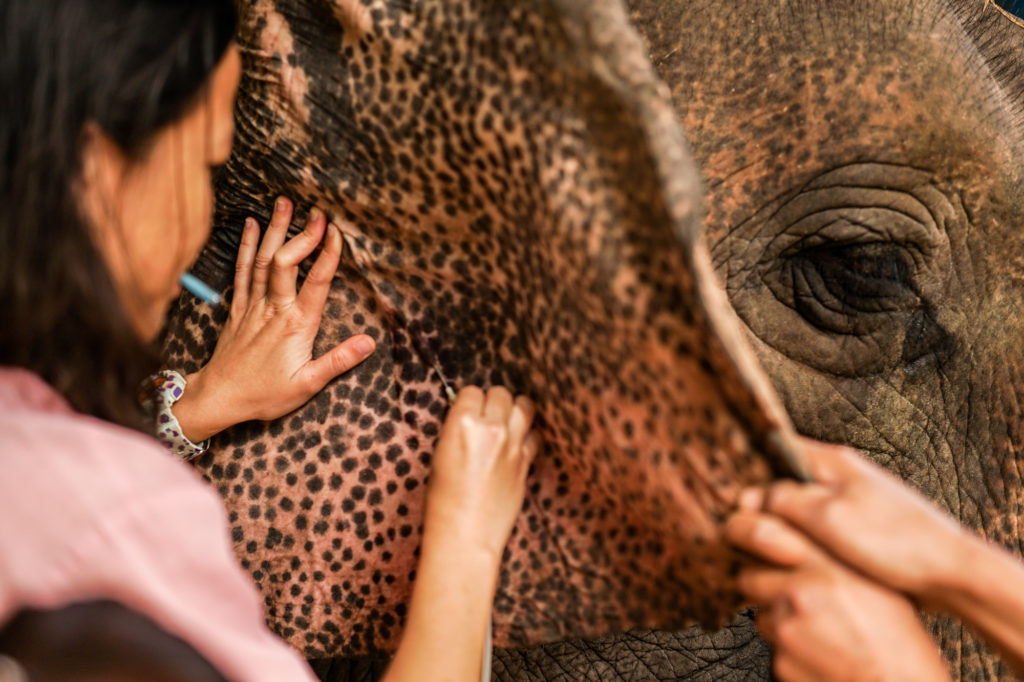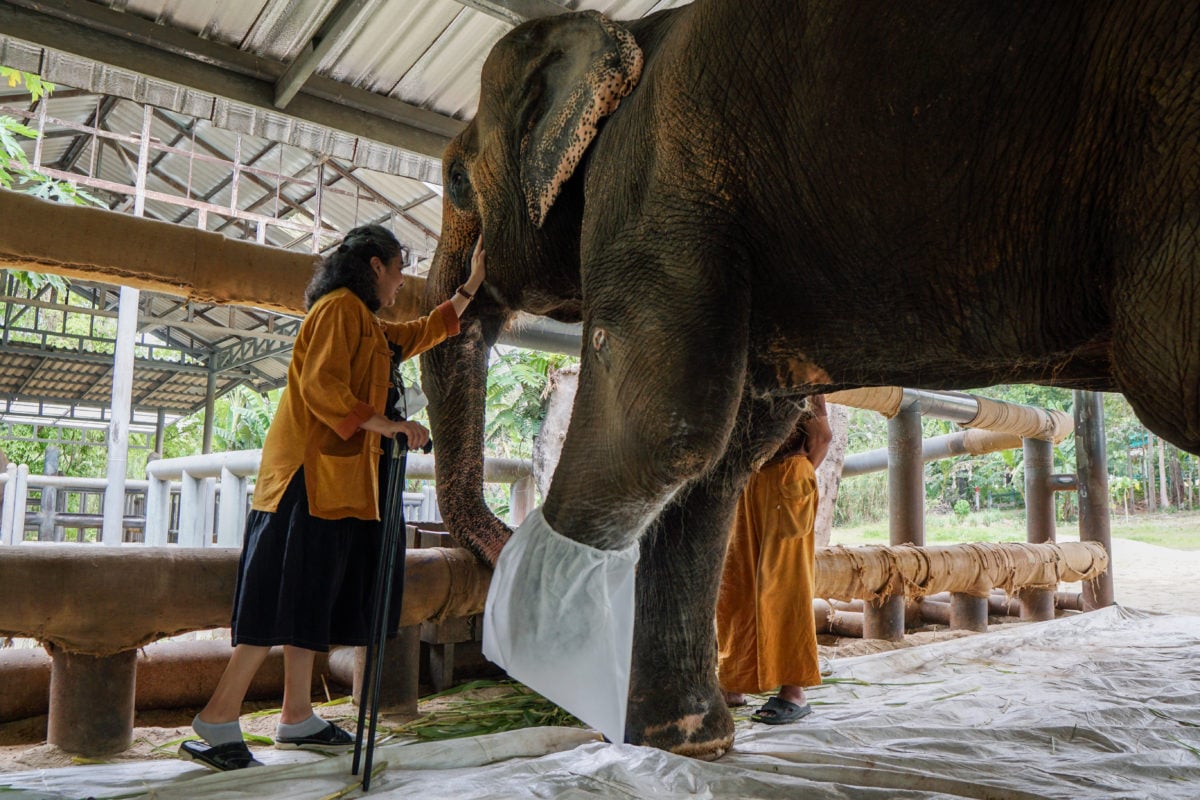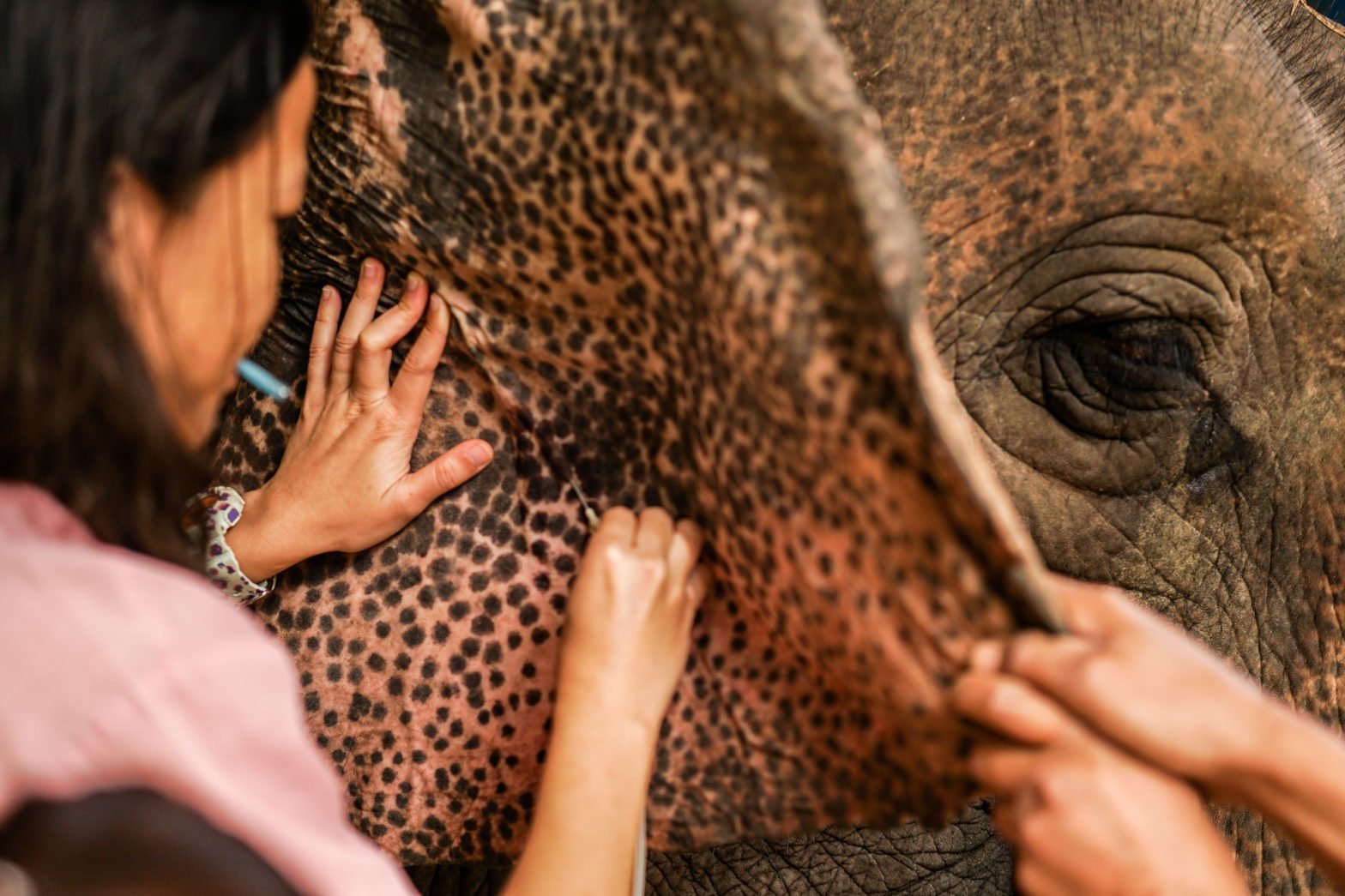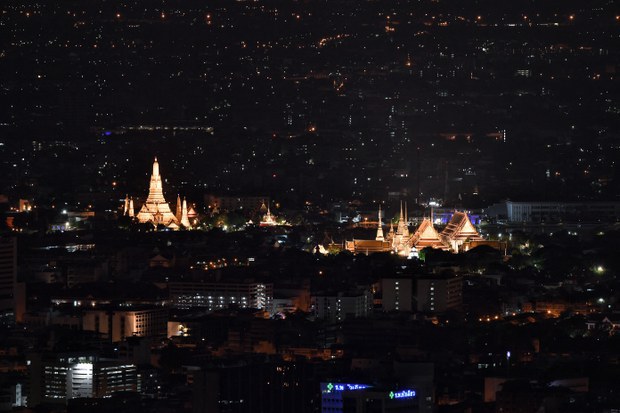Thailand’s elephant tourism is known for its male-dominant culture. It’s rare to see women in the spotlight during elephant shows or among the mahouts, whose jobs are reserved for men only.
But from backstage at the shows to animal shelters, several women have taken leading roles in ensuring the welfare, food availability and good health of the captive elephants.
In many cases, they care for the elephants like their own children, walking miles in search of food for them and consoling them when they are sick.
These women, from the wives of mahouts to veterinarians, have sustained the lives of the elephants during the Covid-19 pandemic that has disrupted the tourism sector and forced many animal shows into bankruptcy. Many mahouts have become unemployed. Women in their families have taken the lead role in feeding and raising funds for the elephants.
Some women, though not in the mahout families, have devoted their lives to saving the elephants because they have empathy for the pure animals.
This is how the elephant world looks through their eyes:
Soraida Salwala
Founder of Friends of the Asian Elephant Hospital in Lampang, Thailand
Soraida Salwala, 65, has given half her life to elephants.
She describes herself as “not a vet nor having any prestige expertise.” She just loves the elephants and wants to see them have the good lives they deserve.
Soraida, a well-educated woman from a good family background, devoted herself to elephants three decades ago – after learning that a group of elephants had died after falling down a cliff in Khao Yai National Park in central Thailand.
In 1993, she founded the world’s first hospital for elephants named Friends of the Asian Elephant Hospital in northern Thailand. With help from volunteer veterinarians, her hospital carried out the world’s first leg amputation on an injured elephant and introduced the world’s first prosthetic brace leg for elephants.
In 2017, she announced she was closing the hospital due to a lack of funds. Within days of her announcement, more than US$1.2 million was donated and she was able to keep the hospital open. Her hospital staff have now treated more than 5,000 elephants since they opened.
People found her work inspiring, mainly because of her dedication to the animals. She once rescued Motala, a female elephant who stepped on a landmine in Myanmar near the Thai border and lost its left front leg – an event which touched people’s hearts. Similar cases are still occasionally reported in Myanmar’s armed-conflict areas.
“I’m 65 and still calling for a change – I’ve been calling for this for the last three decades. I want the Thai government to establish an elephant relief fund that assists elephants and their owners whenever they are in trouble. Caring for elephants is not cheap, and their life spans are long,” she said.
“Elephants are the symbol of Thailand. The government needs to show sincerity in helping them. Don’t leave them with individuals who can’t take care of them properly.
“Taking care of elephants is a huge obligation. This obligation is larger than life, and much larger than all of us tiny women who have been standing up for them.”
Panida Muanghong
A veterinarian at an elephant camp in Chiang Mai, northern Thailand
Panida Muanghong, 32, has taken care of more than 200 elephants in the past seven years. The elephants were mainly used in the animal tourism industry. She went to this camp after being inspired by Preecha Puangkam, a devoted veterinarian famous for his tireless work in healing elephants. She worked with for a short time.
To treat the animals’ wounds, she kneels next to her patients, who each weigh 60 times more than her. She has to deal with their unpredictable moods while giving them intravenous injections in the backs of their ears. Body temperatures are taken by putting her arm into their anus.
During any treatment with elephants, a small mistake or a false step can lead to a fatality – hers!
At present, the elephant camp Panida works for is facing uncertainty due to the pandemic. Its owner has said she will sell the camp to any potential businessmen.
But Panida said she will keep going. “I will take care of them until my last breath,” she said.
Harutai Jongjai-ngam
A female mahout in Surin province, northeastern Thailand
Harutai Jongjai-ngam, 29, lives in Ban Ta Klang in Surin, a province on the Thai-Cambodia border. Her village is a hub for traditional mahouts and captive elephants, and has been a beacon for the close relationship between humans and elephants for centuries.
Her grandfather was a grand master who led spiritual rituals to pray for the prosperity of the elephants and villagers. The old leather robes he used while training elephants throughout his life have been kept in the family shrine. His family’s male offsprings worship the robes and his legend lives on through their performances.
Harutai has spent her entire life looking after the elephants’ wellbeing for her family. But she is not allowed to touch her grandfather’s robes nor enter the shrine.
As a woman, riding elephants is prohibited. But Harutai broke this custom in the summer of 2021.
“It was about noon. A couple of elephants were waiting for their mahout in the heat, to guide them into a shaded area. He didn’t show up and the animals were desperate. They sprayed their own saliva over their bodies to cool down in the heat. I could not stand seeing that,” she recalled.
“I took the hook [left by the mahout] and climbed up over one elephant’s neck. Then I rode them to the shady area. They responded to me gently. I have continued riding elephants since then.”
Harutai is now among a handful of female mahouts in Thailand. They are still not common, although the traditions are now more relaxed. Only three women in her village can ride the more than 200 elephants there.

Read the stories of women who stepped in to rescue Thailand’s elephants. They rose to the challenge when Thailand’s elephant shows closed after Covid-19 killed the tourist trade.





